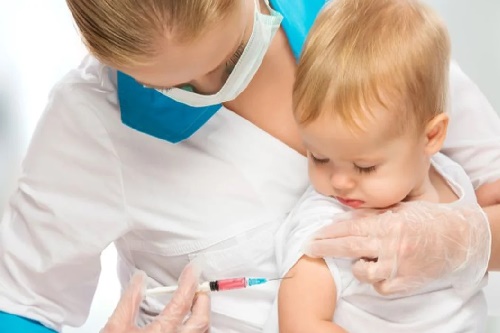Children Vaccination / Immunization
Children Vaccination / Immunization

Let's Help You!
15, First floor, Surendra Landmark, Hoshangabad road, near Ashima Mall, Bhopal, Madhya Pradesh.
8770249894
Have a question? call us now
Immunizations, or vaccines as they’re also known, safely and effectively use a small amount of a weakened or killed virus or bacteria or bits of lab-made protein that imitate the virus in order to prevent infection by that same virus or bacteria.
When you get an immunization, you’re injected with a weakened form of (or a fragment of) a disease. This triggers your body’s immune response, causing it to either produce antibodies to that particular ailment or induce other processes that enhance immunity.
Then, if you’re ever again exposed to the actual disease-causing organism, your immune system is prepared to fight the infection. A vaccine will usually prevent the onset of a disease or else reduce its severity.
Why Should Someone Get Immunized?
The goal of public health is to prevent disease. It’s much easier and more cost-effective to prevent a disease than to treat it. That’s exactly what immunizations aim to do.
Immunizations protect us from serious diseases and also prevent the spread of those diseases to others. Over the years immunizations have thwarted epidemics of once common infectious diseases such as measles, mumps, and whooping cough. And because of immunizations we’ve seen the near eradication of others, such as polio and smallpox.
Some vaccines need to be given only once; others require updates or “boosters” to maintain successful immunization and continued protection against disease.
Which Immunizations Do My Children Need?
Because proof of immunization is often a prerequisite for enrollment in school or day care, it’s important to keep your children up to date on their vaccines. The benefit of doing so is that your children will be protected from diseases that could cause them serious health problems. The recommended immunizations for children 0-6 years of age include:
- Hepatitis B
- Rotavirus
- Diphtheria, tetanus, pertussis
- Haemophilus influenzae type B
- Pneumococcal
- Poliovirus
- Influenza
- Measles, mumps, rubella
- Varicella (chickenpox)
- Hepatitis A
- Meningococcal (for certain high-risk groups)
- BCG Vaccination
- Flu Vaccination
- Typhoid Vaccination
- Japanese Encephalitis Vaccination
- Human Papilloma Virus Vaccination
- Rabies Vaccination
